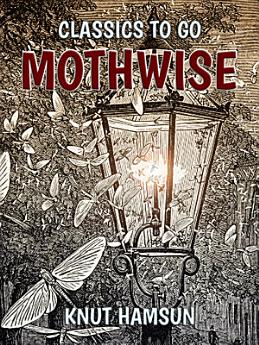Mothwise
2020. g. janv. · Otbebookpublishing
E-grāmata
96
Lappuses
family_home
Piemērota
info
reportAtsauksmes un vērtējumi nav pārbaudīti. Uzzināt vairāk
Par šo e-grāmatu
Excerpt: "Marie van Loos, housekeeper at the Vicarage, stands by the kitchen window looking out far up the road. She knows the couple there by the fence—knows them indeed, seeing 'tis no other than Telegraph-Rolandsen, her own betrothed, and Olga the parish clerk's daughter. It is the second time she has seen those two together this spring—now what does it mean? Save that Jomfru van Loos had a host of things to do just now, she would have gone straight up to them that moment and demanded an explanation. As it was, how could she? There was no time for anything now, with the whole place upside down, and the new priest and his[2] lady expected any minute. Young Ferdinand is already posted at an upstairs window to keep a look-out to seaward, and give warning as soon as the boat is in sight, so that the coffee can be ready the moment the travellers arrive. And they would need it, after coming all the way from Rosengaard, four miles off. Rosengaard is the nearest place at which the steamer calls, and from there they come on by boat."
Par autoru
Knut Hamsun, born Knud Pedersen in 1859 in rural Norway, is a towering figure in modernist literature, renowned for his innovative narrative techniques and psychological depth. Hamsun's early life was marked by hardship and wanderlust, experiences that profoundly shaped his literary voice. He spent years in America, working various odd jobs, which provided rich material for his later works.Hamsun's breakthrough came with "Hunger" (1890), a novel that delves into the psyche of a starving writer, showcasing his pioneering use of stream-of-consciousness and interior monologue. This novel, along with "Mysteries" (1892) and "Pan" (1894), established him as a master of psychological realism and a precursor to later existentialist writers.Hamsun's influence extended to luminaries such as Franz Kafka, Ernest Hemingway, and Thomas Mann, who admired his ability to capture the complexities of the human condition. His works often explore themes of nature, isolation, and the individual's struggle against societal norms, resonating with contemporary readers who grapple with similar issues.However, Hamsun's legacy is marred by his controversial political views. During World War II, he expressed support for Nazi Germany, a stance that led to his post-war arrest and trial for treason. This aspect of his life continues to spark debate, challenging readers to reconcile his literary genius with his flawed human character.Despite the controversies, Hamsun's contributions to literature are undeniable. His revolutionary ideas about narrative structure and character psychology paved the way for modernist and postmodernist writers, ensuring his place in the pantheon of literary greats.
Novērtējiet šo e-grāmatu
Izsakiet savu viedokli!
Informācija lasīšanai
Viedtālruņi un planšetdatori
Instalējiet lietotni Google Play grāmatas Android ierīcēm un iPad planšetdatoriem/iPhone tālruņiem. Lietotne tiks automātiski sinhronizēta ar jūsu kontu un ļaus lasīt saturu tiešsaistē vai bezsaistē neatkarīgi no jūsu atrašanās vietas.
Klēpjdatori un galddatori
Varat klausīties pakalpojumā Google Play iegādātās audiogrāmatas, izmantojot datora tīmekļa pārlūkprogrammu.
E-lasītāji un citas ierīces
Lai lasītu grāmatas tādās elektroniskās tintes ierīcēs kā Kobo e-lasītāji, nepieciešams lejupielādēt failu un pārsūtīt to uz savu ierīci. Izpildiet palīdzības centrā sniegtos detalizētos norādījumus, lai pārsūtītu failus uz atbalstītiem e-lasītājiem.








